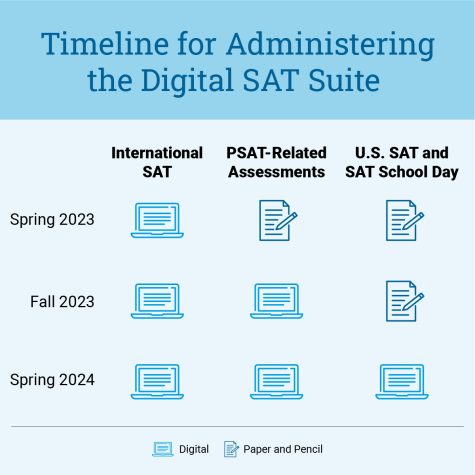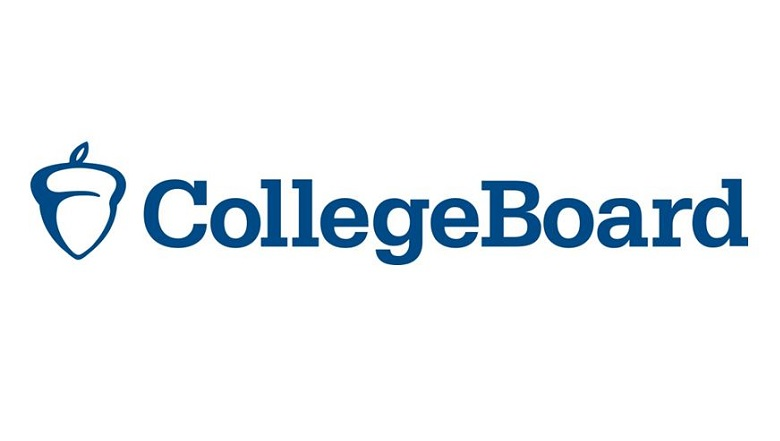SAT Changes: Who is it Really Benefiting?
The SAT is going fully digital, but what are College Board’s true intentions?
February 15, 2022
On Tuesday, January 24, College Board announced that by 2024 the SAT will transition to becoming fully digital. Along with this significant change, the SAT will also be shorter, calculators will be allowed on the entire Math section, scores will get back to students within days, and the online version will be more secure.

According to College Boards’ official press release, the SAT will still be on a 1600 point scale and “will continue to be administered in a school or in a test center with a proctor present.” In a November pilot of the digital test, a student who took it said that ‘”It felt a lot less stressful, and a whole lot quicker than I thought it’d be”‘ (To further understand the changes visit the College Boards website).
When reading this official release, it is hard not to question College Board’s true motive for this shift. In the article, they boisterously proclaim that “83% of Students Say They Want Option to Submit Scores in College Applications”, a statement that, when looking at how test-optional colleges affect College Boards profit, easily leads to distrust at the purpose of such a change. With COVID, there were many changes to the college application process; most importantly, many colleges started to make SAT and ACT scores optional. Some of the colleges to have done this include Harvard, Brown, Columbia, Cornell, Penn State, and Stanford. For most colleges, these changes only last until the 2022-2023 school year, but colleges like Harvard have extended the policy until 2026.
This massive change in the college application places College Board in a challenging situation. As a company, they are used to holding a fierce monopoly over the college process, but COVID put a damper on this money-making machine. In fact, their total operation revenue dropped from $1,059,785 in 2019 to $770,752 in 2020, and in addition, the number of SAT test-takers fell by 627,406 people from 2019 to 2021. These losses mean significantly less money coming into the company, and changing the SAT to become more accessible to everybody is a direct approach to regaining these losses.
It is a common understanding that anyone involved in modern schooling will inevitably enter College Boards’ dominion, either via AP classes, the ACT, CLEP, PSAT, or the SAT. For those people, it can be easy to just sit back and not question the way that such an influential company operates– it’s easier to accept the inevitable than challenge it. As students, teachers, administrators, and parents, we all must do our part in challenging the role that College Board plays in the education system, and for big changes such as the SAT, it’s important to ask what their real motivations are, only by doing so, can we truly create an equal partnership between College Board and schools.

